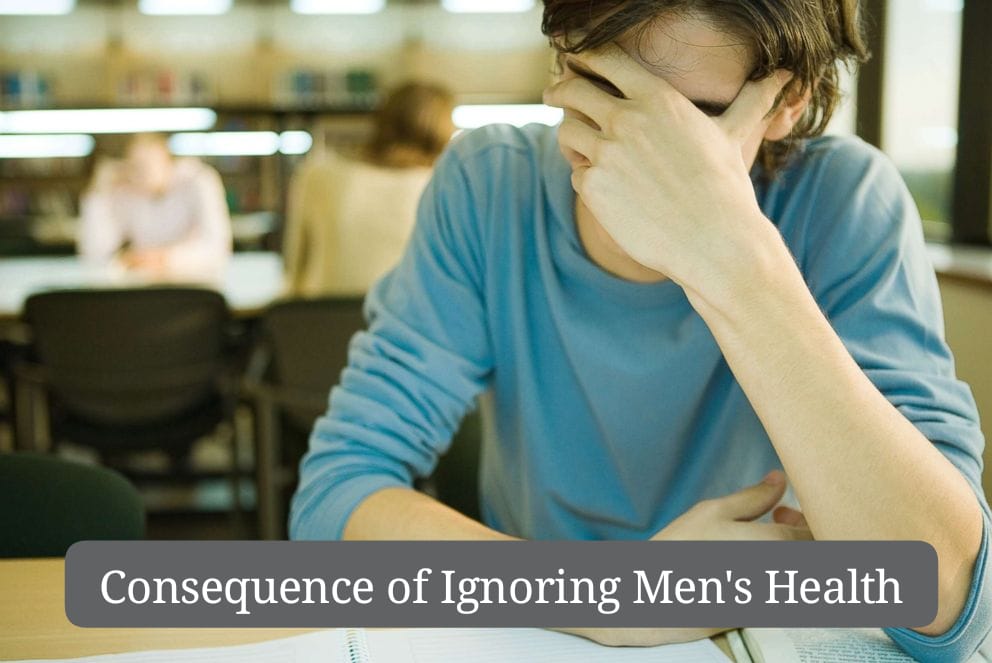Many men struggle with mental health issues like depression and anxiety, but they often don’t talk about it. This silence can make their problems worse and lead to serious consequences. Men’s mental health issues often go unspoken due to societal pressures and the stigma surrounding emotional expression.
Society often tells men they should be tough and hide their feelings. This makes it hard for them to open up about what they’re going through. As a result, they might feel alone and not get the help they need, which can affect their health and happiness.
Understanding men’s mental health is important. Talking openly about these issues and encouraging men to ask for help can remove barriers. This makes it easier for them to get the support they need and feel better overall.
Why Men’s Mental Health Is Important
Mental Health is very crucial because it affects every part of their lives. When men are struggling with issues like depression, anxiety, or stress, it can impact their work, relationships, and overall happiness. If these problems are not addressed, they can lead to more serious health issues and affect those around them.
Related Article: Who to Call for Mental Health Crisis Instead of Police?
It’s important to understand that men, like everyone else, need support and care for their mental well-being to live a balanced and fulfilling life. Focusing on men’s mental health helps break the stigma around seeking help.
By encouraging men to talk about their feelings and seek support, we create a healthier and more supportive environment. This not only improves their quality of life but also strengthens their relationships with family and friends. Raising awareness and providing resources for men’s mental health can lead to better outcomes for individuals and their communities.
Resources About Mental Health Signs and Symptoms
If you’re looking for resources about mental health signs and symptoms, start with reputable websites like the
- American Psychiatric Association, “Warning Signs of Mental Illness”: Highlights key signs and symptoms indicating the need for professional help, with guidance on taking action.
- Mayo Clinic, “Mental Illness”: Offers detailed information on symptoms, signs, causes, risk factors, when to see a doctor, complications, and prevention strategies.
- Mental Health America, “Take a Mental Health Test”: Provides several screening tests for mental health disorders like depression and anxiety, along with links to additional informational resources.
Consequence of Ignoring Men’s Health

Ignoring men’s mental health can lead to serious consequences that affect every part of their lives. When mental health issues like depression or anxiety are left untreated, they can worsen over time, impacting work performance, relationships, and overall quality of life.
Men might experience increased stress, trouble in personal relationships, and difficulty managing daily tasks, which can all contribute to a decrease in their overall well-being. Additionally, neglecting men’s mental health can have severe long-term effects, including higher risks of substance abuse, chronic health problems, and even suicidal thoughts.
Physical Health
Ignoring mental health can seriously affect physical health. When men are stressed or depressed, their bodies are more likely to develop issues like high blood pressure, heart disease, and even chronic pain. Mental health problems can weaken the immune system, making it harder to fight off illnesses. By addressing mental health early, men can help protect their overall physical well-being and prevent these serious health issues.
Related Article: What Can You Do With a Masters in Public Health?
Personal and Professional Lives
Untreated mental health issues can make it tough to manage daily life and work. Men might find it hard to focus at work, leading to poor performance and potential job loss. In their personal lives, they may struggle with motivation and daily tasks, which can create frustration and make it difficult to enjoy activities they once loved.
Family and Relationships
Mental health problems can strain family and personal relationships. When men are struggling, they might withdraw from loved ones or act out in ways that create tension and conflict. This can lead to misunderstandings and hurt feelings, making it harder to maintain close, supportive relationships.
Strategies for Improving Men’s Mental Health

Improving men’s mental health begins with focusing on self-care. Simple steps like exercising regularly, eating healthy foods, and getting enough sleep can greatly boost mental well-being. Doing things that bring joy, like hobbies or spending time outdoors, can also help lower stress and improve mood.
Additionally, setting aside time for self-care and relaxation is essential for maintaining good mental health. Another important strategy is seeking support and talking about feelings. Men should be encouraged to reach out to friends, family, or a mental health professional if they are struggling.
Joining support groups or talking to a therapist can provide valuable help and a safe space to express emotions. Building strong, supportive relationships and being open about mental health can make a significant difference in improving overall well-being.
June Is Men’s Mental Health Month
June is Men’s Mental Health Month, a special time to focus on the mental well-being of men. During this month, various activities and events help raise awareness about the challenges men face with their mental health.
It’s a chance to highlight the importance of seeking help and breaking down the stigma around mental health issues. This month encourages men to openly talk about their feelings and seek support if they need it. It also aims to provide information and resources to help men take care of their mental health.
By supporting Men’s Mental Health Month, we can help create a more understanding and supportive environment for men to manage their mental well-being effectively.
Related Article: Is Men’s Mental Health Month in June or November?
Conclusion
Men’s mental health is crucial because it impacts every aspect of their lives, from work and personal happiness to physical health. Addressing mental health issues early can prevent serious problems and improve overall well-being. By raising awareness and encouraging open discussions, we help men get the support they need.
During Men’s Mental Health Month in June, we focus on raising awareness about these important issues. It’s a time to encourage men to talk about their mental health, seek help, and access valuable resources. Supporting this month helps build a more supportive environment for men to manage their mental health effectively.
FAQs
What are common signs of mental health issues in men?
Common signs include persistent sadness, irritability, changes in sleep or appetite, and difficulty concentrating.
How can men improve their mental health?
Men can improve their mental health by exercising regularly, eating well, getting enough sleep, and talking openly about their feelings.
Why is it hard for men to talk about mental health?
Society often expects men to be strong and hide their emotions. This can make it difficult for them to open up about their struggles and seek support.
How to help a guy with mental health?
To help a guy with mental health issues, listen to him without judgment and encourage him to seek professional support. Offer your support and let him know he’s not alone.
What are the main causes of Men Mental Health?
Men’s mental health issues often come from stress and pressure to hide feelings. These factors can make it hard to seek help and worsen problems.
Resources
- Men’s Mental Health: https://www.healthline.com/health/mens-health/mens-mental-health-month





